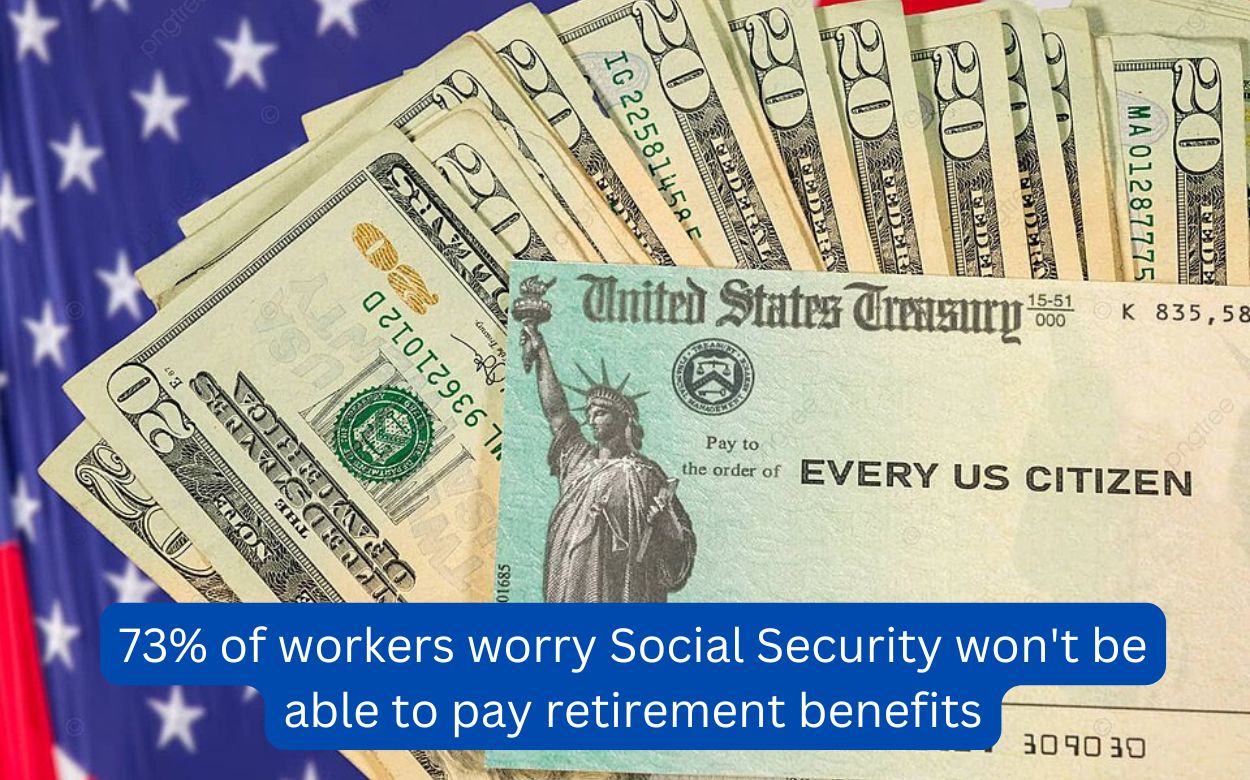Shocking Survey: 73% of Workers Fear Social Security Won’t Cover Their Retirement – Are You at Risk?
Most Americans anticipate relying on Social Security payments when they retire, but a new survey finds that most are concerned they will not receive them.
According to a Bankrate survey, more than half (53%) of nonretired persons in the United States expect their Social Security cheques to meet retirement expenses. At the same time, 73% are anxious that they will not receive the benefits they were promised when they retired. Those anxieties are not unfounded: Social Security is experiencing a budgetary shortage.
If Congress does not act, Social Security claimants’ monthly payments might be reduced by hundreds of dollars within the next decade. While it is exceedingly improbable that federal lawmakers will allow that to happen, they have thus far chosen to postpone extensive reforms that may be politically controversial.
According to experts, the longer Congress waits, the more radical the adjustments must be in the future. “There’s a vast divide between Americans’ concern about the looming Social Security funding shortfall and the lack of serious and thorough conversation among elected officials about what to do about it,” Bankrate Senior Economic Analyst Mark Hamrick said in a statement. “The result is that the American public’s financial well-being is not being tended to.”
Remember that even if Congress does nothing and the trust funds that pay out Social Security benefits run out, seniors would still receive a monthly check, though it may be less than what was promised. According to the Brookings Institution, the current financing problem is “at least double” that of 1983, when Social Security was in severe circumstances. Before Congress’ intervention, insolvency was only months away.

How much do retirees rely on social security?
According to Bankrate, more than three-quarters (77%) of current retirees rely on Social Security to cover their living expenses, with 62% claiming to be “very dependent.” The rising cost of living has disproportionately affected fixed incomes for seniors in recent years. According to government data, approximately 12% of men and 15% of women in the 65+ age group rely on Social Security to satisfy 90% of their needs. Social Security is supposed to replace around 40% of prior wages, but about four out of every ten seniors receive more than half of their income from the program.
According to a recent AARP survey, seniors may become even more reliant on Social Security in the coming years, with 20% of those over 50 reporting no retirement savings. President-elect Donald Trump has promised to reduce the burden by eliminating taxes on retiree benefits, but analysts believe this would require bipartisan support and is unlikely to occur.
What is the Typical Retirement check?
According to the Social Security Administration, October’s average monthly retirement payment was $1,924. The yearly cost-of-living adjustment will increase retirees’ income by 2.5% in January. The size of your monthly retirement check is determined by numerous criteria, including how long you worked, how much you earned throughout your career, and when you began collecting. You can calculate your projected benefit here. There is no ideal age to start collecting benefits because everyone’s circumstances vary, but evidence suggests that waiting until age 70 is usually preferable. You may get up to 124% of your total Social Security payout at that moment.


Comments are closed, but trackbacks and pingbacks are open.